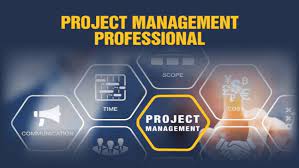
About this course
Project management is a critical skill for any organization, business or industry. The ability to manage complex tasks, deliverables, and deadlines is essential to ensure successful project delivery. Regardless of industry, having a solid foundation in project management can make the difference between success and failure.
A project management course from beginner to expert is designed to provide aspiring project managers with the tools they need for effective project management, from the very first stages of project planning, all the way to project closure. The course will cover a range of topics including project initiation, scope management, risk assessment and management, project scheduling, cost and budget management, quality management, communication, change control, and project closure. Students progress from developing a basic understanding of project management concepts to advanced knowledge and techniques.
Beginner project management courses start with the fundamentals of project management. Participants learn project management frameworks, best practices, and methodologies. The course covers project initiation, project planning, project execution, and project monitoring and control. Participants will be introduced to the basics of project life cycle, stakeholder engagement and communication.
Intermediate project management courses dive deeper into project management processes and techniques. Participants will learn about scope management, pricing and budgeting, human resource management, and procurement management. Participants will also be taught techniques for project scheduling and resource allocation. This level of course prepares participants to manage more complex projects.
Advanced project management courses build on the foundations laid in earlier courses and cover advanced topics such as risk management, quality control, change management, and project closure. Advanced courses will cover issues that may arise during complex projects, such as managing turnovers or project hand-offs, business continuity planning, and risk mitigation.
The ideal way to become an expert in project management is by gaining hands-on experience. Project management courses will typically have project simulation exercises that allow participants to apply the concepts they have learned and practice their project management skills in a safe and controlled environment.
In addition to fundamental project management knowledge and real-world experience, project management from beginner to expert courses should teach participants to develop soft skills such as leadership, teamwork, and communication. Participants should understand how to identify and meet stakeholder needs and how to manage and communicate project progress to their team and stakeholders.
In conclusion, a project management course from beginner to expert covers all aspects necessary for effective project management. The course provides a comprehensive study of project management fundamentals, including advanced concepts and hands-on experience. By mastering the basics and building on it, participants develop a wide range of project management skills. This includes both technical and soft skills, making them effective project leaders who can manage complex projects effectively.
FAQ
What does this course cover?
This course covers the fundamentals of project management, including project planning, scheduling, risk management, budgeting, and quality control. It also includes practical tips and best practices to help you manage your projects effectively.
What are the prerequisites for this course?
There are no formal prerequisites for this course, but some basic knowledge of project management concepts would be helpful.
How long is the course?
The course consists of 5 hours of video lectures, plus additional reading materials, quizzes, and assignments. You can complete the course at your own pace, but it is recommended that you allot 10-12 weeks to finish it.
What kind of support is available during the course?
The course offers a discussion forum where you can interact with other students and ask questions. Additionally, you can contact the course instructor or the Super Bunnies support team if you need any help with the course content or technical issues.
Is there a certificate of completion?
Yes. If you complete all the course assignments and quizzes with a passing grade, you will receive a certificate of completion that you can showcase on your resume or LinkedIn profile.
What kind of job roles can benefit from this course?
This course is beneficial for anyone who is involved in managing projects, regardless of their industry or job role. It is especially useful for project managers, team leaders, entrepreneurs, and business owners who want to improve their project management skills and deliver better results.
Comments (0)
Introduction to Project Management
7 Parts
- 0:10 Hr
1 Introduction
5 bytes bytes bytes bytes bytes bytes MB
2. What is Project management?
Project management is the application of knowledge, skills, tools, and techniques to deliver project objectives within specified time, scope, quality, and budget requirements. It is an essential skill for organizations worldwide, and knowing how to manage successful projects is crucial for success.
10 Min
Attachments:
3 Examination Characteristics
0 bytes MB
4 Test Taking Tips and Techniques
0 bytes MB
5 Post Certification Requirements
0 bytes MB
6 Process Domain and Framework defined
0 bytes MB
7 Getting Certified to take the Examination
0 bytes MB
Project Management process
22 Parts
1 Process Domain and Framework
0 bytes MB
2 Process Life Cycles
0 bytes MB
3 Framework Definitions
0 bytes MB
4 Project Manager Skills
0 bytes MB
5 Framework Key Points
0 bytes MB
6 Framework Example Questions
0 bytes MB
7 Project Integration Management
0 bytes MB
8 Knowledge Area Process Mapping
0 bytes MB
9 Project Charter and Plan
0 bytes MB
10 Direct, Manage and Control Project
0 bytes MB
11 Change Control
0 bytes MB
12 Project closing
0 bytes MB
13 Project Integration part 1
0 bytes MB
14 Project Integration part 2
0 bytes MB
15 Project Scope Management
0 bytes MB
16 Plan Scope Management
0 bytes MB
17 Nominal Group Technique
0 bytes MB
18 Project Scope
0 bytes MB
19 Breakdown Structures
0 bytes MB
20 Validate Scope and Control Scope
0 bytes MB
21 Defining Requirements in Agile
0 bytes MB
22 Prioritizing requirements
0 bytes MB
Time Management in Project
10 Parts
Project Schedule Management
0 bytes MB
Plan Schedule Management
0 bytes MB
Predecessors, Dependencies, Leads, and Lags
0 bytes MB
Estimate Activity Durations
0 bytes MB
Develop Schedule
0 bytes MB
Critical Path Method
0 bytes MB
Schedule Compression
0 bytes MB
Formatting and Controlling Schedule
0 bytes MB
Agile Estimating
0 bytes MB
Agile Schedule Planning and Reporting
0 bytes MB
Project Budget Management
6 Parts
Project Cost Management
0 bytes MB
Plan and Estimate Cost
0 bytes MB
Types of Cost, Value and Depreciation
0 bytes MB
Life Cycle Costing, Determine Budget & Reporting
0 bytes MB
Control Costs, and Earned Value Management
0 bytes MB
Earned Schedule, and Agile Cost Control
0 bytes MB
Project Quality Management
6 Parts
Project Quality Management
0 bytes MB
Plan Quality Management
0 bytes MB
Manage Quality
0 bytes MB
Control Quality
0 bytes MB
Continuous Improvement in Agile/ Kaizen
0 bytes MB
Continuous Improvement in Agile/Retrospectives
0 bytes MB
Project Risk Management
6 Parts
Project Risk Management
0 bytes MB
Plan and Identify Risks
0 bytes MB
Risk Register and Issues Vs Risk
0 bytes MB
Risk Analysis
0 bytes MB
Plan Risk Responses
0 bytes MB
Implement Risk Responses & Monitoring
0 bytes MB
Project Procurement Management
7 Parts
Introduction to Project Procurement
0 bytes MB
Plan and Conduct Procurements
0 bytes MB
Contracts
0 bytes MB
Share and Point of Total Assumption
0 bytes MB
Procurement Documents
0 bytes MB
Awards and Control Procurements
0 bytes MB
Agile Contracts
0 bytes MB
People and Communications Management
4 Parts
People and Project Communications
0 bytes MB
Plan Communications
0 bytes MB
Manage and Monitor Communications
0 bytes MB
Agile Communications
0 bytes MB
Project Stakeholder Management
5 Parts
Project Stakeholder
0 bytes MB
Stakeholder Position Descriptions
0 bytes MB
Identify Stakeholders
0 bytes MB
Engagement and Manage Stakeholder
0 bytes MB
Agile Stakeholder Engagement Techniques
0 bytes MB
Resource Management
6 Parts
Introduction to Business Environment Management
0 bytes MB
Plan and Estimate Activity Resources
0 bytes MB
Acquire Resources and Develop Team
0 bytes MB
Manage Team
0 bytes MB
Agile Teaming Concepts
0 bytes MB
Agile Team Roles
0 bytes MB
Business Environment Management
4 Parts
Introduction to Business Environment
0 bytes MB
Project Selection Tools
0 bytes MB
Organizational Structure
0 bytes MB
Agile in the Business Environment
0 bytes MB

0
0 Reviews







